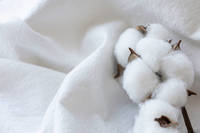Organic Cotton vs Regular Cotton: The Sustainable Choice for a
-
Posted by Sustainable Clothing - Filed in Shopping - 482 views
In the era of environmental awareness and ethical consumerism, the clothing industry has come under scrutiny for its impact on the planet. One of the most significant debates revolves around the use of organic cotton versus regular cotton. As consumers become more conscious of the consequences of their choices, understanding the distinctions between these two types of cotton is crucial for making informed decisions.
What is Organic Cotton?
Organic cotton is a natural fiber grown without the use of synthetic pesticides, fertilizers, or genetically modified organisms (GMOs). It is cultivated through sustainable farming practices that prioritize soil health, biodiversity, and environmental conservation. Organic cotton farming adheres to strict regulations and certification processes to ensure compliance with established standards.
Conventional Cotton Farming
On the other hand, regular or conventional cotton farming relies heavily on the use of chemical pesticides, insecticides, and synthetic fertilizers. These practices, while aimed at maximizing yield and productivity, can have detrimental effects on the environment, soil quality, and the health of farmers and workers.
The Environmental Impact
- Pesticide and Chemical Use: Regular cotton farming is a significant contributor to the global consumption of pesticides and synthetic chemicals. These substances not only contaminate soil and water sources but also pose risks to the health of farmers and surrounding communities. In contrast, organic cotton cultivation avoids the use of harmful chemicals, reducing environmental pollution and protecting ecosystems.
- Water Consumption: Cotton is a notoriously thirsty crop, and conventional farming techniques often involve excessive water usage for irrigation. Organic cotton farming, on the other hand, employs water-efficient methods and crop rotation practices, minimizing water wastage and preserving this precious resource.
- Soil Health: The indiscriminate use of synthetic fertilizers in regular cotton farming can deplete soil nutrients and disrupt the natural balance of the ecosystem. Organic cotton cultivation prioritizes soil fertility through the use of natural fertilizers and crop rotation, promoting long-term soil health and sustainability.
- Biodiversity: Conventional cotton farming often relies on monoculture practices, which can lead to a loss of biodiversity and disrupt local ecosystems. Organic cotton farming encourages crop diversity and the preservation of natural habitats, supporting a rich and diverse range of plant and animal species.
The Health Perspective
- Toxic Exposure: Regular cotton cultivation exposes farmers and workers to harmful pesticides and chemicals, which can have long-term health consequences. Organic cotton farming eliminates this risk by avoiding the use of toxic substances, providing a safer working environment for those involved in the production process.
- Product Safety: Conventional cotton garments may contain residues of pesticides and chemicals used during cultivation, which can be absorbed through the skin or inhaled. Organic cotton clothing, on the other hand, is free from these harmful substances, making it a safer choice for sensitive skin and individuals concerned about chemical exposure.
The Economic and Social Impact
- Farmer Livelihoods: Organic cotton farming often supports small-scale and family-owned farms, providing opportunities for sustainable livelihoods and fair wages. Additionally, the reduced dependence on expensive synthetic inputs can result in lower production costs for organic cotton farmers.
- Community Development: Many organic cotton initiatives prioritize community development and social responsibility. By investing in education, healthcare, and infrastructure, these programs aim to improve the lives of farmers and their communities, fostering long-term sustainability and empowerment.
The Fashion Industry's Embrace of Organic Cotton
As consumer demand for sustainable and ethical products continues to grow, the fashion industry has taken notice of the benefits of organic cotton. Many renowned brands and retailers have begun incorporating organic cotton into their collections, responding to the call for environmentally conscious and socially responsible practices.
Challenges and Opportunities
- Supply and Demand: While the demand for organic cotton is increasing, its supply remains limited, accounting for only a small percentage of global cotton production. Scaling up organic cotton farming requires significant investment, training, and infrastructure development.
- Cost and Accessibility: Organic cotton is generally more expensive than regular cotton due to the labor-intensive nature of cultivation and the additional costs associated with certification and compliance. However, as demand increases and economies of scale are achieved, the cost gap is expected to narrow, making organic cotton more accessible to a broader consumer base.
- Transparency and Traceability: Ensuring the authenticity and traceability of organic cotton throughout the supply chain remains a challenge. Robust certification systems and blockchain technology can play a crucial role in enhancing transparency and building consumer trust.
Conclusion
The choice for organic cotton vs regular is not merely a matter of personal preference; it carries profound implications for the environment, human health, and the future of sustainable fashion. Organic cotton cultivation presents a viable and responsible alternative to conventional farming practices, offering a path towards a greener planet and a more ethical apparel industry.
As consumers become increasingly aware of the impacts of their choices, the demand for organic cotton is likely to surge, driving further innovation and investment in sustainable practices. By embracing organic cotton, we can collectively contribute to reducing our environmental footprint, promoting fair labor practices, and preserving the planet for generations to come.
